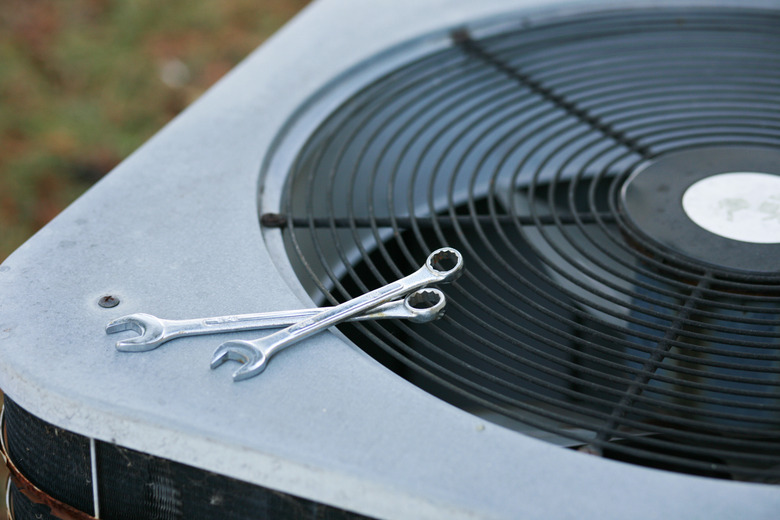My Air Conditioner Compressor Is Not Kicking On
Your air conditioner compressor sits in the outside unit of your central air and is essential to the cooling process. If it stops working correctly, you'll notice the temperature increasing in your home. Doing some simple checks can help you determine why your air conditioner compressor is not kicking on when it should. If it's not a simple fix, your HVAC troubleshooting might be able to help your HVAC professional determine what's wrong.
Power Supply Issues
Power Supply Issues
The easiest and first option you should consider is a power issue. If the outdoor fan is running but the compressor isn't working correctly, power isn't the issue. However, if the fan also isn't working, the unit might not be getting power. Check the breaker switch that controls the system and ensure the system switch, which looks like a light switch and is on or near the indoor unit, is turned on. If the power supply isn't the issue, move on to other troubleshooting options.
Dirty Condenser Coils
Dirty Condenser Coils
Your outside A/C unit includes condenser coils, which help move the heat out of the system. Since they're outdoors, they can become extremely dirty, which keeps the system from expelling the heat properly. This can force the system to work harder, increase pressure, and increase the temperature, which can cause the compressor to stop working correctly.
Cleaning the condenser coils is part of regular air conditioner maintenance that helps keep your system running well. Before cleaning any part of it, make sure the power to the unit is shut off. Use a shop vac to clean off debris from the outside of the unit. Use a fin comb to straighten any bent fins.
You can also remove the top of the outdoor unit to clean debris out of the inside. Use a garden hose to spray from inside the unit outward through the fins. Cleaning the condenser can prevent future damage, but if the dirty coils have already caused condenser damage, you'll still need an HVAC technician to fix the problem.
Suction Line Issues
Suction Line Issues
The suctions lines can lead to issues with your compressor. If the line is too large or too small, it could damage the compressor and require potentially expensive repairs. This happens if the HVAC professional who installed the unit originally or worked on it later incorrectly sized the suction line.
Clogs in the suction line can also cause issues with the compressor. When the line is blocked, the system has trouble cooling your home. It can also increase the pressure and temperature in the system, causing damage or overheating in the compressor. An HVAC pro can help correct issues with the suction line.
Incorrect Refrigerant Levels
Incorrect Refrigerant Levels
The condenser needs the right amount of refrigerant to work correctly. A refrigerant overcharge happens when there's too much refrigerant in the system. Extra refrigerant won't help the system cool better but will instead cause damage to the compressor. If your A/C has a leak, the refrigerant levels can become too low, which makes the compressor work harder and can cause damage. A system with low refrigerant usually can't cool your home properly.
Any refrigerant issues need to be handled by a licensed HVAC professional. No one else is qualified to handle refrigerant, as it can be very dangerous because it's poisonous. An HVAC company can determine if the refrigerant levels are normal and whether or not there's a leak that needs to be repaired.
Contact an HVAC Professional
Contact an HVAC Professional
Many issues with the compressor require a professional fix. The compressor can break down for a variety of reasons, and the HVAC technician can figure out why it happened and how to fix it. It could be something as minor as loose terminal connections, or you might need to have parts replaced to correct the issue.
